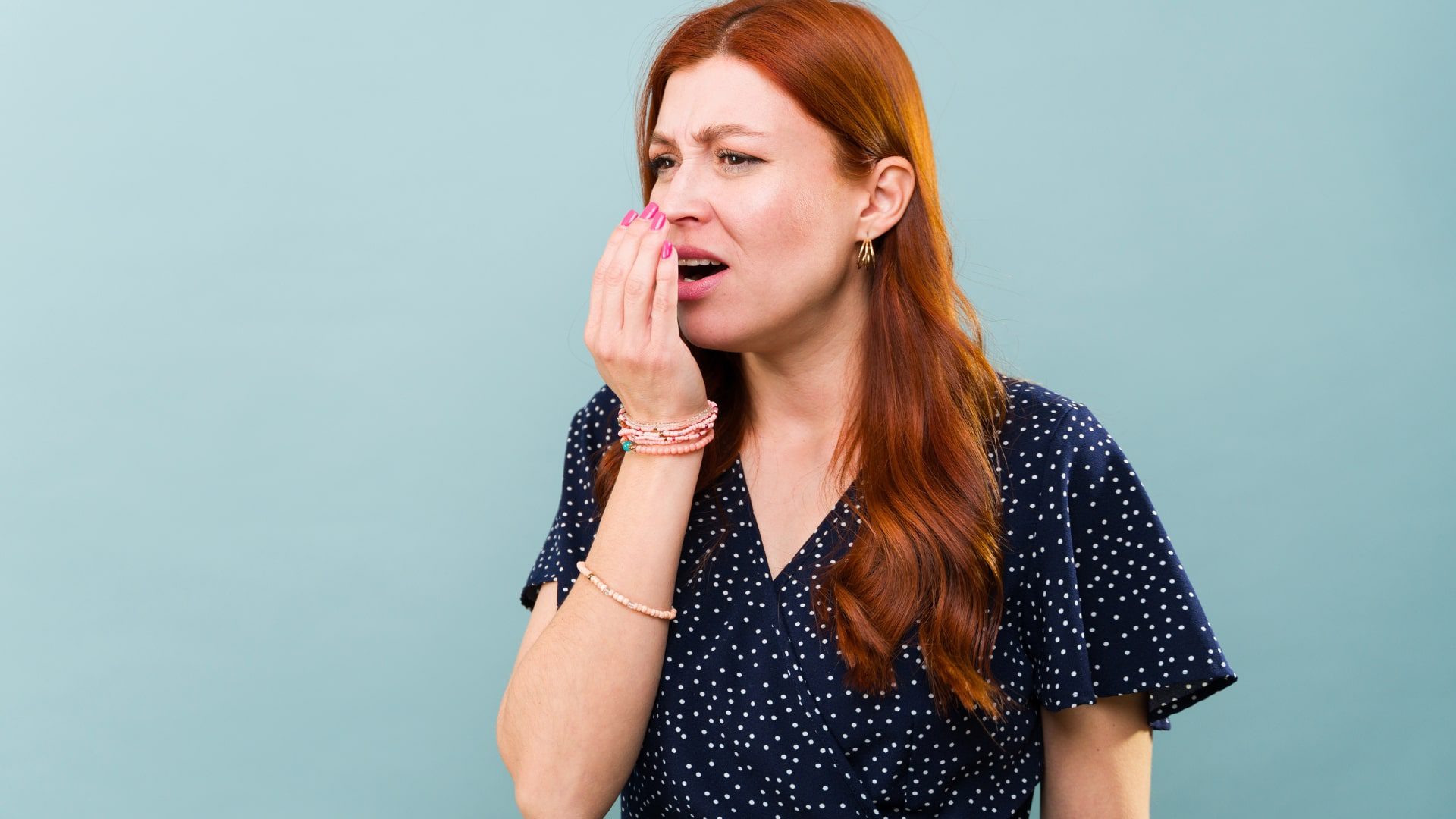
Bad breath, also known as halitosis, is more than just an embarrassing condition—it can also indicate underlying oral or health issues. According to doctors and dental experts, treating bad breath requires a mix of good oral hygiene, lifestyle changes, and medical care when needed. Let’s explore what causes bad breath and how to get rid of it effectively.
Table of Contents
Common Causes of Bad Breath
Before we jump into solutions, it’s important to know why bad breath happens:
-
Poor Oral Hygiene – Food particles left in the mouth cause bacterial buildup.
-
Dry Mouth – Saliva helps cleanse the mouth; lack of it can cause odor.
-
Gum Disease – Infections in the gums produce foul-smelling toxins.
-
Dental Issues – Cavities, plaque, and unclean dentures trap bacteria.
-
Food & Drinks – Onion, garlic, alcohol, and coffee linger in the mouth.
-
Smoking & Tobacco Use – Strong odor and reduced saliva flow.
-
Medical Conditions – Sinus infections, diabetes, acid reflux, and liver or kidney issues can contribute.
Doctors’ Tips to Treat and Prevent Bad Breath
1. Practice Excellent Oral Hygiene
-
Brush your teeth twice a day with fluoride toothpaste.
-
Don’t forget to brush your tongue – it traps odor-causing bacteria.
-
Floss daily to remove hidden food particles between teeth.
-
Replace your toothbrush every 3 months.
2. Stay Hydrated
-
Drink plenty of water throughout the day.
-
Chewing sugar-free gum can also stimulate saliva and reduce odor.
3. Watch Your Diet
-
Limit foods like garlic, onions, and spicy dishes before social gatherings.
-
Reduce alcohol and coffee, which dry out the mouth.
-
Eat crunchy fruits and vegetables like apples, carrots, and celery—they naturally clean teeth.
4. Quit Smoking and Tobacco
-
Tobacco leaves a persistent odor and damages gum health.
-
Doctors strongly advise quitting smoking for both oral and overall health.
5. Regular Dental Check-ups
-
Visit your dentist every 6 months for professional cleaning.
-
Treat cavities, gum infections, or plaque buildup early.
6. Treat Underlying Health Conditions
-
If bad breath continues despite good oral care, consult a doctor.
-
Conditions like sinus infections, tonsil stones, acid reflux, or diabetes may need medical attention.
7. Use Mouthwash Wisely
-
Use an antibacterial or fluoride-based mouthwash (avoid alcohol-based ones as they dry the mouth).
-
Rinse after meals if brushing isn’t possible.
When to See a Doctor
Seek professional advice if:
-
Bad breath is persistent despite good oral hygiene.
-
You notice bleeding gums, loose teeth, or pain.
-
You experience dry mouth constantly or other health symptoms.
Bad breath can be managed and often eliminated with proper oral hygiene, lifestyle changes, and medical treatment when needed. Doctors emphasize that regular check-ups and addressing the root cause are the most effective ways to enjoy fresh breath and confidence in daily life.


